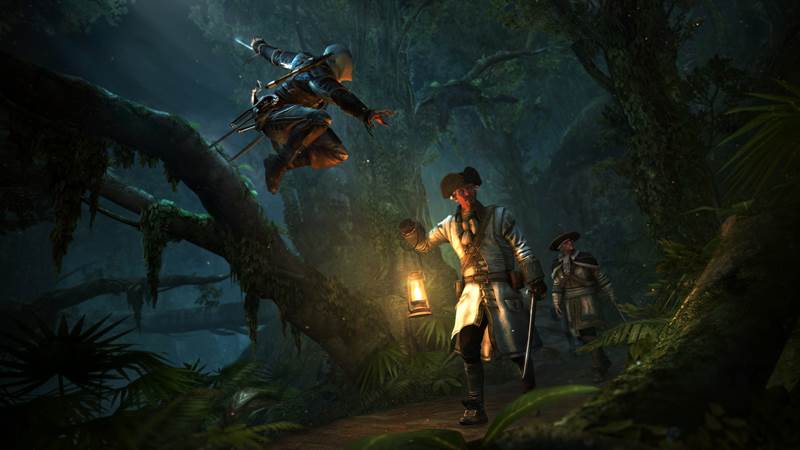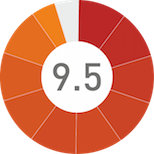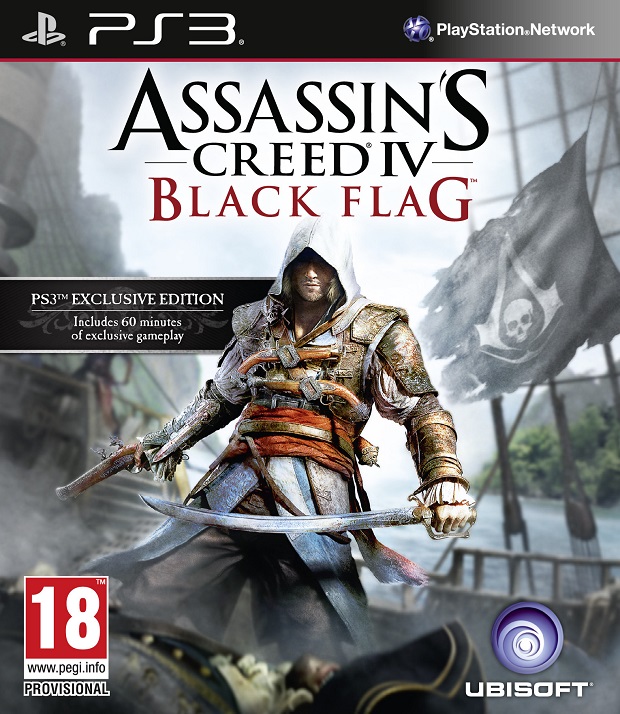
Assassin’s Creed II was a once in a generation masterpiece. It was the rare instance of a sequel that not only took everything that was good about the first game and improved upon it, but also took the bad, and polished it away, while simultaneously also expanding the scope of the series. Players fondly remember the exploits of Ezio through Renaissance Italy, and if future games in the franchise have not been remembered as fondly, it is less their fault than it is Assassin’s Creed II’s success- the game was simply too darn good, it was the game to judge all future entries in the franchise against, and it was the kind of legend that fed itself with time.
Regular readers might remember how I prefaced last year’s review for the sprawling Assassin’s Creed III with the disclaimer that it was not as good as Assassin’s Creed II. Ultimately, that is the curse of this franchise, where every new entry has to be judged in the shadow of its towering predecessor. So far, every single game has failed to meet players’ expectations in that regard, every single game since II has failed to live up to its increasingly lofty standards. And as time has passed by, more and more players have become disillusioned with what is widely perceived to be a precipitous decline in quality.
"Assassin's Creed IV: Black Flag isn't just a game that lives up to Assassin's Creed II, it damn well surpasses it in nearly every single respect."
Until now, with Assassin’s Creed IV: Black Flag, the sixth Assassin’s Creed game released in as many years, and one that ushers out the old generation of consoles and welcomes in the new one, most players are too wary or burned to jump in just on good faith. Most of them want a reassurance that Assassin’s Creed IV is a worthy successor to Assassin’s Creed II, and they won’t buy into the hype until they are convinced of that. To those players, I am happy to report that Assassin’s Creed IV: Black Flag isn’t just a game that lives up to Assassin’s Creed II, it damn well surpasses it in nearly every single respect.
For those not in the know, Assassin’s Creed IV is actually a prequel to Assassin’s Creed III (at least in the historical timeline; in the increasingly convoluted present day timeline, it seems to follow the previous game). It follows the exploits of one Edward Kenway, a man who leaves his wife and hime back in Wales to try and earn some good gold in the Caribbean region. Edward (who is in fact the grandfather of Connor, the divisive protagonist of the previous game) inevitably finds himself thrown into the titanic struggle of the Templars versus the Assassins, and, in a rather dramatic break from tradition, does not side with the Assassins.
Instead, the game sees him just pitting the two factions against one another for his own ends, as it actually displays both sides of the story in this war to the player for a change, instead of the overt, heavy handed ‘Assassins good, Templars bad’ attitude that it has adopted in the last few years.
It lends itself to a surprisingly compelling narrative, as we see it deal with not just the larger issues of the historic Templar/Assassin conflict, and its grey shades of morality, but also some very real and very human issues, such as a desire to find one’s place in the world, and one’s ultimate obligation to one’s family and home. Somehow, it manages to hit all of these notes while also being a damn fine tale about the swashbuckling adventures of a band of pirates, and all the high seas adventure and humor that goes with it.
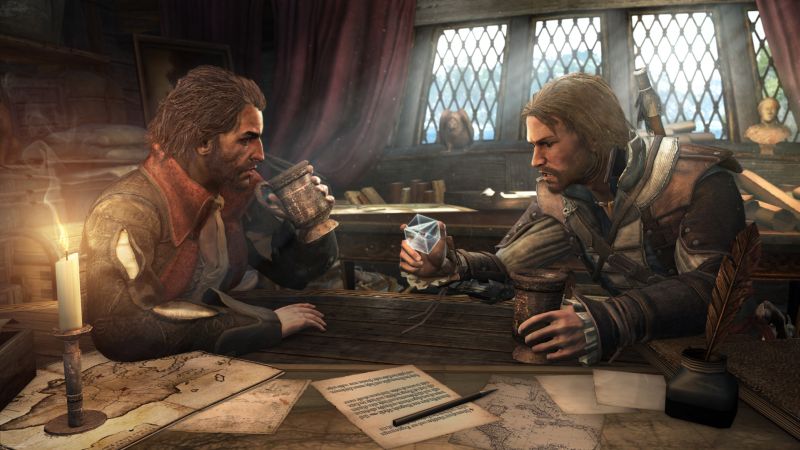
"Unlike no other game in the series before, Assassin's Creed IV gives you a fully realized world to play in. It faithfully recreates the Caribbean, complete with its major cities of the era, each with its own distinct look and flavor, but it also peppers the region with countless unmapped and uninhabited islands."
The story in Assassin’s Creed IV is great (and it has an unexpectedly great resolution, in a series known for its unsatisfying endings), but ultimately, it is de-emphasized. The developers have wisely chosen to utilize the ‘show, not tell’ line of thinking, and no longer are we treated to the glacial pace and the never ending exposition that so bogged down Assassin’s Creed III; Black Flag is a swift moving game that above all seems to want to just get out of your way and let you do your thing.
And ultimately, that is where the game’s greatest success lies. Unlike no other game in the series before, Assassin’s Creed IV gives you a fully realized world to play in. It faithfully recreates the Caribbean, complete with its major cities of the era, each with its own distinct look and flavor, but it also peppers the region with countless unmapped and uninhabited islands. Some of these are barely more than glorified beaches, but others have forests and cliffs and ancient ruins on them, mysteries to explore, bonuses to find. In Assassin’s Creed IV, you can spend hours upon hours playing, but not actually getting anything done, because there is so much to do, and all of it feels just so compelling and fun.
The great thing is that unlike Assassin’s Creed III, which presented the player with a similar range of activities, but ultimately failed in binding all those activities together into a cohesive whole, Black Flag actually ties everything that you can do neatly into one tidy package, so that all of the game’s numerous ancillary activities help you feel like you are still advancing your story through the game. For example, you can still hunt animals (on land, and on sea: Black Flag lets you harpoon sharks!), but now you can use their skin and bones to upgrade your weapons and armor, ala Far Cry 3 or Monster Hunter.
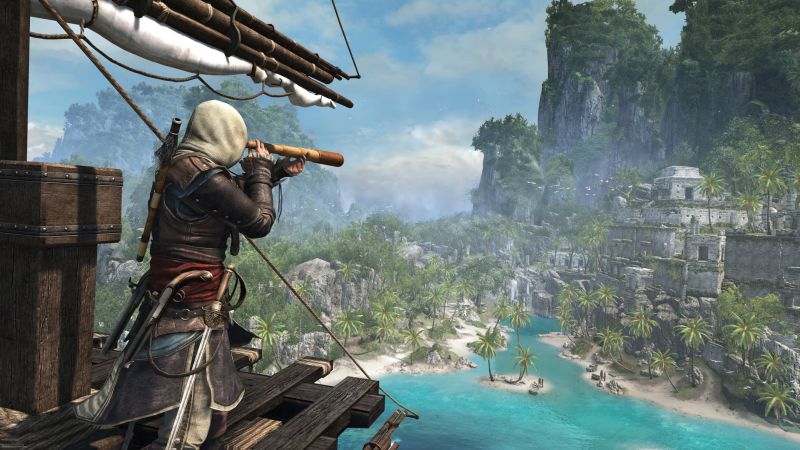
"Landing on a lush tropical island, and exploring old ruins to find some long forgotten treasure, as well as maybe the location of a new shipwreck makes you really feel like you are a part of this organic world. It makes you actually feel like a pirate in the Caribbean, actually living out the life of Edward Kenway."
Similarly, in the tradition of the Borgia Forts, Black Flag gives you tons of forts to plunder and take over; doing this not only makes traveling through the world easier (forts will shoot at any passing pirate ships that they see), but also opens up still more activities for you on the map, such as locations for new whales or sharks to hunt, or maybe the location of an abandoned shipwreck. Explore the shipwreck to find more money, which you can use to upgrade your ship. Upgrade your ship to ensure victory in naval combat, which lets you either use the plunder from the other ship to add to your riches (and upgrade your ship, the Jackdaw), or just add it to your fleet, and send it to do some trading missions by the side.
It’s a wonderfully cohesive in game economy, and everything works together. No matter what you are doing in Black Flag, you will never feel like it is pointless, or like you are wasting your time. Though nothing but the main story is necessary to progress, everything else just further adds to and aids the main story, enhances it. Landing on a lush tropical island, and exploring old ruins to find some long forgotten treasure, as well as maybe the location of a new shipwreck makes you really feel like you are a part of this organic world. It makes you actually feel like a pirate in the Caribbean, actually living out the life of Edward Kenway.
To those who read the description above and shook their head wistfully, bemoaning the series’ loss of its identity, don’t worry- what makes Assassin’s Creed Assassin’s Creed is still here, although a lot of it is also the weakest part of the overall package. So you have all of your freerunning that characterizes the series- through the wild, like in Assassin’s Creed III, but also through urban environments that are far more realized and fun to run through than Boston and New York were. They’re not as much fun or as vertically oriented (or dense) as Florence or Rome were, but they’re pretty darn great. And unlike Assassin’s Creed II and Brotherhood, where the vertical platforming and freerunning defined the game, there’s so much else to do that a little de-emphasis doesn’t matter.
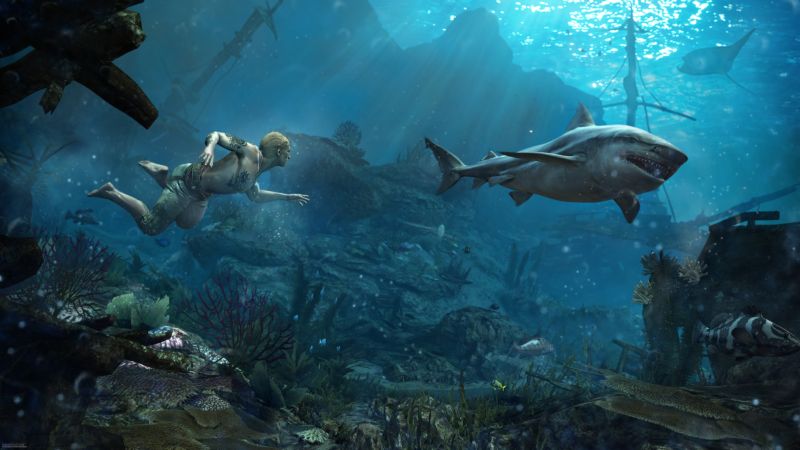
"The combat is another weak point in the game, at least the one on one land combat. It's still reliant overly on counters, and it's still basically 'Super-man mode,' in how powerful it makes you, but at least it flows freely and looks cool, even if it doesn't particularly present a challenge."
Then there’s the combat and the stealth: though Assassin’s Creed debuted as a stealth oriented franchise back in 2007, over the years, stealth increasingly got de-emphasized (and dated and cumbersome), until whenever it came up, it embarrassed the game design, and just got in the way. In Assassin’s Creed IV, that hasn’t exactly changed- stealth is still as bad as ever, but the developers have recognized the fact and made concessions to it. For instance, for any forced stealth missions, the game gives you extended safe zones, like some bushes or foliage where you can basically stay out of sight no matter what, and still complete the mission. It’s a temporary fix for a much bigger problem, but it works, and it doesn’t let the poor stealth sections break up the pacing of the game.
The combat is another weak point in the game, at least the one on one land combat. It’s still reliant overly on counters, and it’s still basically ‘Super-man mode,’ in how powerful it makes you, but at least it flows freely and looks cool, even if it doesn’t particularly present a challenge. And where the one on one combat falls short, the naval combat is where the game shines: it’s flat out glorious, as Ubisoft have taken the prototype provided by the naval side missions in Assassin’s Creed III, and refined and fine tuned it to provide a genuinely thrilling and exciting naval combat experience. It’s genuinely exhilarating, as you ram your ship into another, and then board it to loot it.
The sea sections are honestly among the best gameplay sections ever in the series- just exploring this fully realized, bursting at the seams world is so much fun. The true victory of Assassin’s Creed IV is in how well it recreates the feeling of adventure on the high seas that a pirate game should have. You’re given a vast, open world, and you’re given full lease to go and do in it as you please. No longer does the game guide you through its paces in an excruciatingly slow start and long tutorial.
And once you are done with the massive campaign or the expansive overworld, you still aren’t done with all the game has to offer: the multiplayer mode from the last three Assassin’s Creed games returns, and while it hasn’t seen very many changes, it still maintains that oddly compelling nature that made it catch on in the first place.
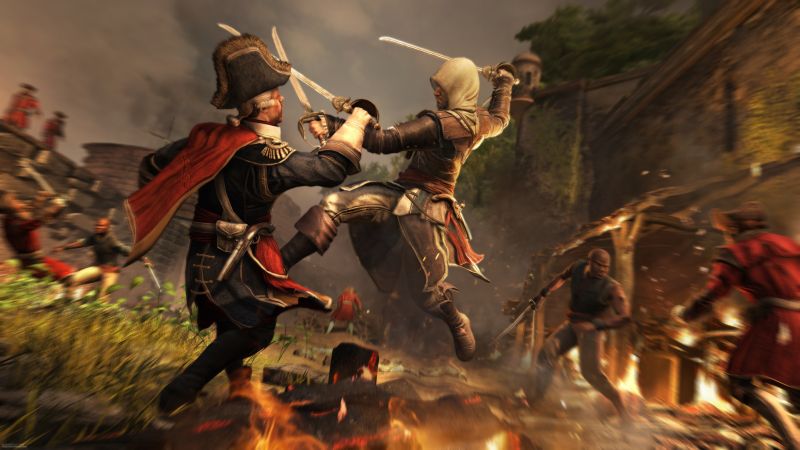
"It took Ubisoft four years and three failed attempts, but they've finally done it. They've outdone Assassin's Creed II. And in doing so, they've given us one of the best games of this generation."
This is a sandbox in the truest sense of the word. Assassin’s Creed IV does so much, and it does it all so well, it’s staggering. And in spite of this, the game never loses its focus, and remains a true Assassin’s Creed game through and through. It becomes the most expansive, and yet most focused, game in the series till date, and it spins one of the best yarns that the series has seen till date. In doing so, it also gives us the best Assassin’s Creed game yet.
It’s kind of fitting, really. The original Assassin’s Creed was one of the games that ushered in this generation of game consoles, giving us a glimpse at the possibilities. And now Assassin’s Creed IV: Black Flag stands as the ultimate realization of the limitless scope that the first game hinted at, the best game in the series yet, and one of this generation’s finest accomplishments.
It also establishes the groundwork for the series going forward, into the next generation. It took Ubisoft four years and three failed attempts, but they’ve finally done it. They’ve outdone Assassin’s Creed II. And in doing so, they’ve given us one of the best games of this generation.
This game was reviewed on the Xbox 360.
The fully realized, seamless open world; tons to do, and all of it adds up; the naval combat and exploration is thrilling and exhilarating; the story is great, with a brisk pace, and an unexpectedly emotional resolution; the free running is as good as ever; the stealth no longer gets in your way; hours upon hours of content
The core stealth and combat mechanics are in dire need of an overhaul









